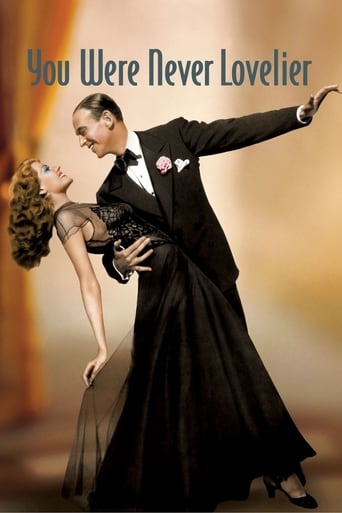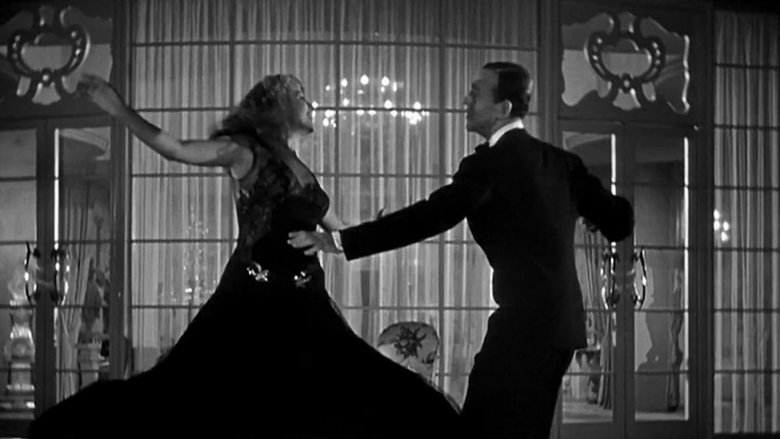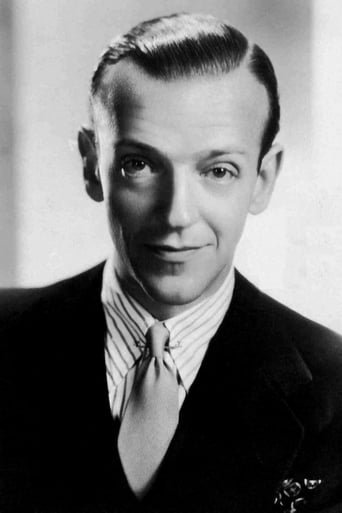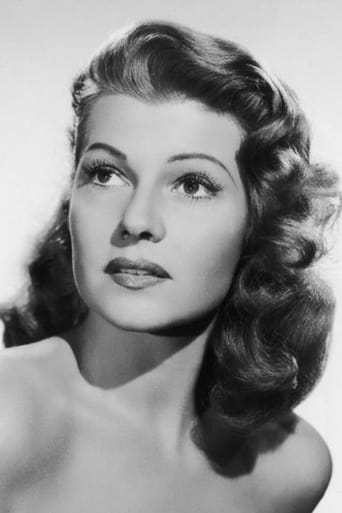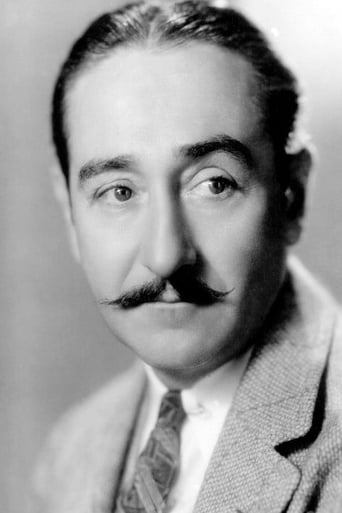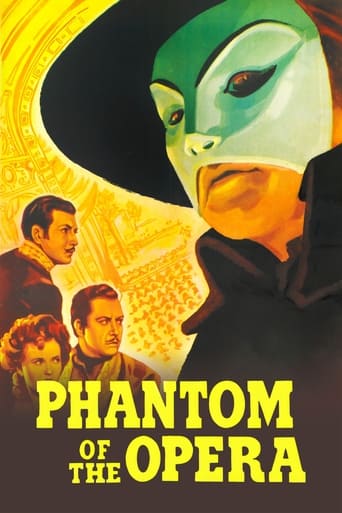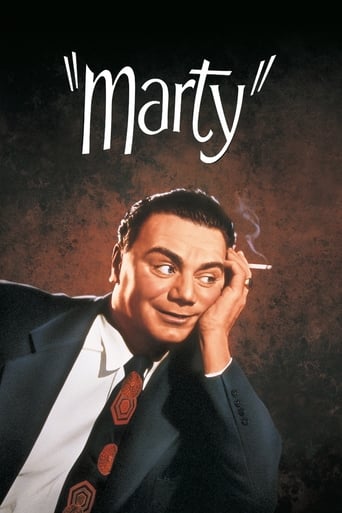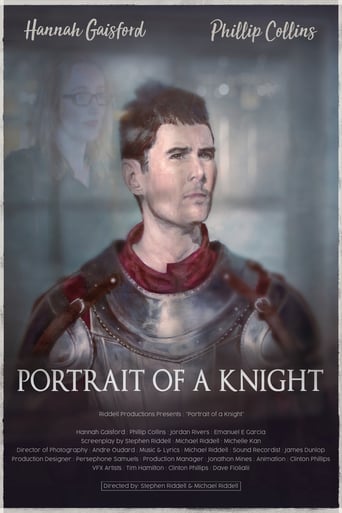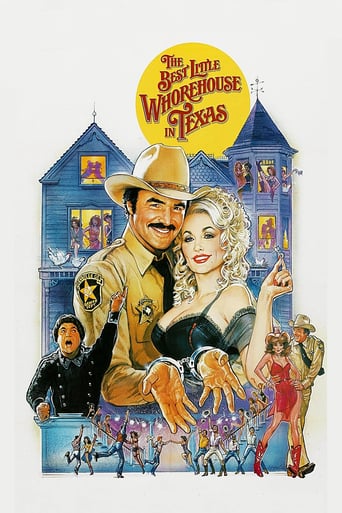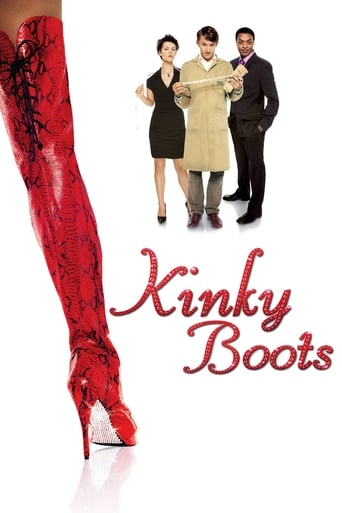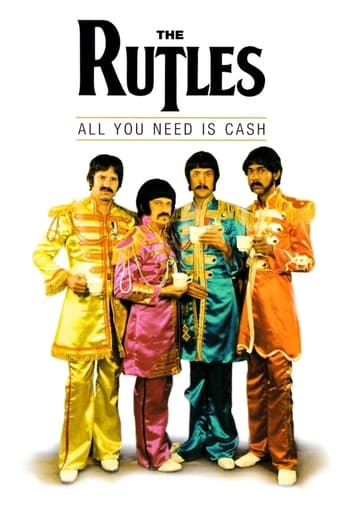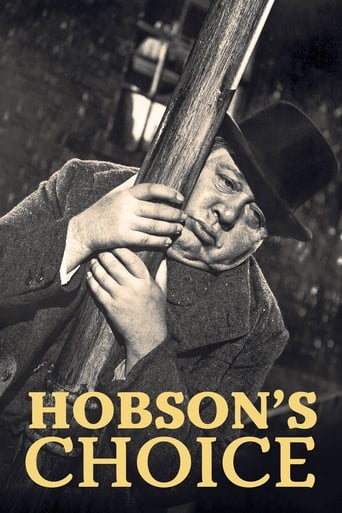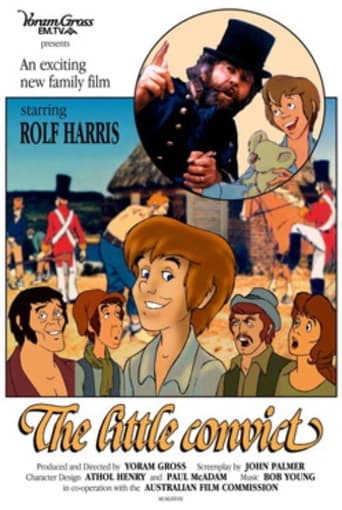You Were Never Lovelier (1942)
An Argentine heiress thinks a penniless American dancer is her secret admirer.
Watch Trailer
Free Trial Channels
Cast


Similar titles
Reviews
Good idea lost in the noise
I like movies that are aware of what they are selling... without [any] greater aspirations than to make people laugh and that's it.
It isn't all that great, actually. Really cheesy and very predicable of how certain scenes are gonna turn play out. However, I guess that's the charm of it all, because I would consider this one of my guilty pleasures.
It really made me laugh, but for some moments I was tearing up because I could relate so much.
Why was the supposed location of this delightful musical romantic comedy in Argentina, when minimal effort is made to convince the audience that it actually takes place there? This was the era of FDR's 'good neighbor policy', to try to keep Latin American countries(and especially Argentina)from siding with the Fascists in WWII. Film studios were pressured to include some films supposedly located in Latin countries, featuring some Latin musical performers. Fox had done or would do several prominent musicals toward this goal, including 'Down Argentine Way". Unfortunately, the latter backfired and was banned in Argentina, as the Argentine brass didn't like the phony attempt to characterize themselves. I guess the studio brass of this film learned that lesson and made little attempt to convince that they were actually in Argentina, aside from Cugat's orchestra, and Rita's partial Latin heritage. But, according to the script, Cugat's bunch are actually from NYC, along with Astaire's character!Yes, the screen play is pretty hokey and corny all around, but apparently the brass were hoping this would mostly add to the appeal. On the whole, it's quite fun. The complicated relationships that develop between the principals is quite entertaining. The frequent heated exchanges between the dictatorial Adolphe Menjou(el groucho) as the old fashioned father of a house full of debutant daughters, and Fred(jumping jack), as the broke vacationing hoofer Bob Davis, or Menjou's greeter, Fernando(court jester)(Gus Schilling), are priceless. Rita(refrigerator princess) or the other main characters are sometimes included. Menjou's role as 'Father knows best' is really the centerpiece of the screen play. We see why, given a good script, Menjou was such a good scene stealer. Perhaps you can't take his frequent shouting down at others, but this was an effective part of the comedy for me.Rita, at age 24, is pretty and vivacious, but sometimes acts almost mannequin-like, with a manufactured-looking big smile. Apparently, this was intended. In many other scenes, her acting is fine, as she alternatively discourages or encourages Fred's interest in her. Fred, at nearly twice her age and looking it, is actually playing someone more her supposed age(probably about 20). But his other striking attributes apparently more than compensated for this.Excusing the decision to film this in B&W, rather than color, on wartime financial limits doesn't ring true to me. This same year, Rita starred in the Fox Technicolor musical "My Gal Sal". The year before, she costarred in the Fox Technicolor "Blood and Sand". In '44, Columbia finally filmed Rita-starring "Cover Girl" in Technicolor. Lacking competition from TV in this era, I think most studios, including MGM, were depending on the quality of their stars, music and scripts, in most cases, to attract audiences. The Kerns and Mercer score is not very memorable. But then, dancing , rather then singing, was supposed to be the forte of this film. I thought the title song was weak. I'm surprised the film wasn't titled "Dearly Beloved". soloed by both Fred and Rita. It also fits in with the love letters sent by Menjou's character to daughter Maria(Rita).Cugat's orchestra included a sizable chorus, lead by cute, personable, Lina Romay, who got a few solo or duet segments. They are featured in 4 numbers. Lina was a NYC-bred Latino, who sometimes was included as an actress or singer in films. For a version of "Chui, Chui", featured in this film, where she solos the entire number, see You Tube. Leslie Brooks and Adele Mara, as Rita's slightly younger sisters, are OK and pretty, and get to sing one number together. They and Lina would live much longer and presumably happier lives than Rita, whose star shown much brighter for some years to come. Barbara Brown was also well cast as Menjou's wife and foil, infamous for her supposedly harmless derringer converted into a cigarette lighter.Fred gets to dance around Menjou's office, including on the furniture, during his unofficial audition for a spot in Menjou's nightclub. Later, Fred and Rita do a light romantic dance sequence on the family patio to the memorable "I'm Old Fashioned". Then, they dance more vigorously to "The Shorty George", which incorporates elements of jive and tap dancing. The finale begins with a Cugat band serenade outside Rita's window, followed by Fred's arrival as a knight-in-shining-armor on horse, in supposed mimicry of Rita's one time heartthrob: Luckinbaugh. This is followed by another Fred + Rita romantic dance, to the title song, and ends with their first kiss.After leaving RKO and Ginger, Fred was paired on film with quite a few leading ladies: some famous dancers, others not. It's not real surprising that he apparently found Rita his favorite dance partner, nor that she considered this her favorite film. This was also the year that Fred costarred with Bing in that classic musical extravaganza "Holiday Inn", which unfortunately overshadowed this film, although, again, unforgivably shot in B&W.
A true romantic comedy of 1942 was this film. It takes place in Argentina where Adolphe Menjou insists that his 4 daughters get married in the order of their age. When the eldest does marry, pressure is put on daughter #2, Rita Hayworth, a cold person, whose presence prevents daughters 3 and 4 from marrying their beaus.At this point, Fred Astaire enters the film as a New York dancer looking for work in Argentina when he blows all his money on the horses. Menjou has the idea of writing letters to his daughter, and then it is assumed that Astaire has been writing the letters.You don't have to have a doctorate to realize that love shall invariably develop between Hayworth and Astaire, but the dancing and music are awesome.Xavier Cugat stars as himself in this lively film, and the guy who plays Fernando, brings comic relief. Menjou is as crusty as ever, but is brought down to humility by film's end due to his writing getting him in trouble with his devoted wife, the latter thinks an affair by him is occurring!Fun to watch. Enjoyable to see.
YOU WERE NEVER LOVELIER is a sweet love story. I love Fred Astaire with Rita Hayworth, and her domineering father played by Adolphe Menjou. It has a terrific supporting cast, too. I actually own this movie, and I don't usually buy them unless I really like them! The dancing is not what you see when Astaire is with Ginger Rogers, but I just seemed to gel with it somehow anyway. It has a special air of romance, and Hayworth is not only beautiful, but also she's captivating as an actress. I'm not a huge musical fan, but this is one of my few major exceptions. It has more story and romance than just dance numbers every few minutes, or at least it seems that way. I highly recommend this film to fans of these performers or of the comedy-drama-romance type of musicals.
I assume the title is referring to Rita Hayworth and not dancin' Fred; it has to be said that Hayworth really is enjoying the luminous beauty and healthy sheen of a creature in their absolute prime here. Beside her, Astaire - who, had he attempted a career in movies without those flashing feet, would have been consigned to the role of gawky comedy sidekick instead of elegant leading man - looks skinny and prematurely old. Until he starts dancing, of course, and then they look like they were made for each other.When the two of them aren't dancing, Adolphe Menjou keeps stealing the picture as Rita's over-protective father who writes anonymous love letter to his own daughter in the hope that she will fall in love with her fictitious beau. Yeah, it's one of those ridiculous Hollywood plots that the studios felt obliged to squeeze in between the musical numbers. I wonder if audiences in the 40s found them as crass as we do today? Anyway, the plot - what there is of it - follows it's predictable course, but nobody really watches these movies for its plot, and this film's greatest strength today is that it transports us back to a Hollywood that no longer exists; a Hollywood that oozes chic glamour and style, and offers escape to those romantics to whom plot and characterisation are secondary concerns.

